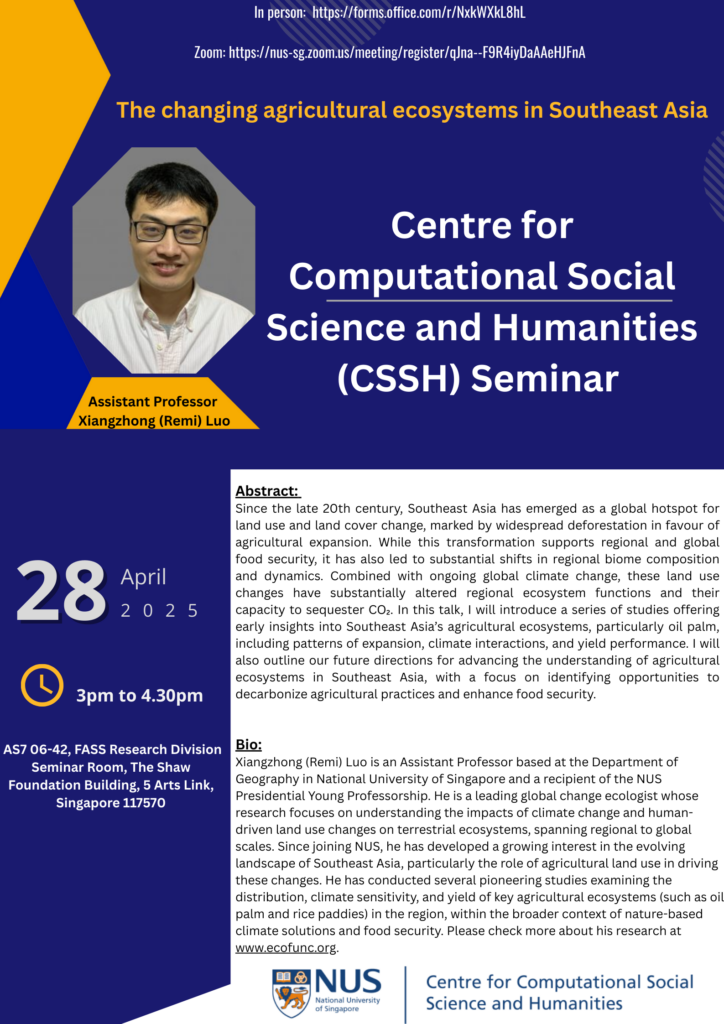The Changing Agricultural Ecosystems in Southeast Asia

Speaker: Assistant Professor Xiangzhong (Remi) Luo
- 28th April 2025 3pm to 4.30pm
- AS7 06-42, FASS Shaw Foundation Building, Research Division Seminar Room (or Zoom)
Abstract:
Since the late 20th century, Southeast Asia has emerged as a global hotspot for land use and land cover change, marked by widespread deforestation in favour of agricultural expansion. While this transformation supports regional and global food security, it has also led to substantial shifts in regional biome composition and dynamics. Combined with ongoing global climate change, these land use changes have substantially altered regional ecosystem functions and their capacity to sequester CO₂. In this talk, I will introduce a series of studies offering early insights into Southeast Asia’s agricultural ecosystems, particularly oil palm, including patterns of expansion, climate interactions, and yield performance. I will also outline our future directions for advancing the understanding of agricultural ecosystems in Southeast Asia, with a focus on identifying opportunities to decarbonize agricultural practices and enhance food security.
Bio:
Xiangzhong (Remi) Luo is an Assistant Professor based at the Department of Geography in National University of Singapore and a recipient of the NUS Presidential Young Professorship. He is a leading global change ecologist whose research focuses on understanding the impacts of climate change and human-driven land use changes on terrestrial ecosystems, spanning regional to global scales. Since joining NUS, he has developed a growing interest in the evolving landscape of Southeast Asia, particularly the role of agricultural land use in driving these changes. He has conducted several pioneering studies examining the distribution, climate sensitivity, and yield of key agricultural ecosystems (such as oil palm and rice paddies) in the region, within the broader context of nature-based climate solutions and food security. Please check more about his research at www.ecofunc.org.
